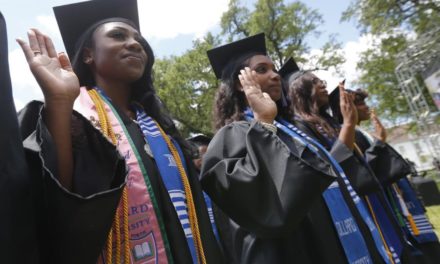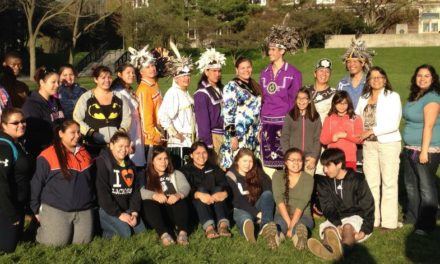If something has sparked you to learn more about earning a Master’s Degree in Education, you must read this article to help with the decision-making process.
You are not alone.
To further your educational career, you will likely need a Master’s degree of some kind, and possibly a Ph.D. as well. Almost five million African Americans hold four-year college degrees, and a large percentage of the degree holders are women.
There’s plenty to begin thinking about as you take this next big career step, including which degree is best for you, how you will finance it and how graduate school classes will affect your future.
Degree
What is your ultimate professional goal? Will you continue in the classroom with a Master of Arts in Teaching, transition to leadership with a Master of Education or analyze student performance with a Master of Science? Your career choice will determine your degree type.
Financial Aid
You may be eligible for a scholarship, but if you will be going to school full time, ask about teaching or research assistantships. Student loan payback programs, like teacher loan forgiveness programs, may be a consideration.
Juggling Classes
Most graduate schools understand that you are also working; you can usually teach by day and take classes at night. Your course load should depend on your commitments, commute time and ability to handle multiple demands on your time. Most graduate students take six to nine credits per semester when working full time.
The Right Graduate School
Perhaps one of the hardest parts of graduate school is selecting the field in which you want to focus. Today’s hot fields include special education, educational technology, counseling, educational administration, online teaching, reading and literacy, and educational policy and management.
Johns Hopkins, Harvard, Stanford and Vanderbilt universities rank at the top of the list of best graduate schools for education. Historically black universities such as Howard, Tuskegee and Winston-Salem State also deserve your attention, but here are 10 more traditional and nontraditional graduate schools for your consideration.
10 Great Master’s in Education Programs
Graduate School |
Location |
% Minority |
Cost (full-time enrollment)* |
Requirements/Application Process |
Comments |
Bowie State University** |
Bowie, MD | 89% African American, 3% Hispanic, 2% white | $11,009/yr | -Completed application
-$40 nonrefundable fee -Bachelor’s degree (2.5 GPA or higher) -Official transcripts -Additional materials as requested |
Offers M.Ed. degree. This university is known and respected as a teacher-training university. |
CoppinState University** |
Baltimore, MD | 83% African American, 2% Hispanic, 1% white | $9,667/yr | -Completed application
-$45 nonrefundable fee -Bachelor’s degree (2.6 GPA or higher) -Official transcripts -GRE, MAT or PRAXIS scores -Recommendation letters (3) |
Offers M.A., M.Ed., M.S. degrees. The Education department has developed a strong working relationship with local school districts to improve their programs in teaching and learning. |
Fayetteville State University** |
Fayetteville, NC | 62% African American | $12,887/yr | -Completed application
-$40 nonrefundable fee -Baccalaureate degree transcripts -Recommendation letters -Copy of current licensure -GRE, MAT or GMAT scores -Written statement -Interview |
Offers M.Ed. degree. The School of Education is nationally recognized for teaching exemplary practices in education. |
Florida A&M University |
Tallahassee, FL | 88% African American | $11,335/yr | -Completed application
-$30 nonrefundable fee -Baccalaureate degree (3.0 GPA or higher) -Official transcripts -Recommendation letters (3) -Résumé, if required -Immunization form
|
Offers M.Ed., M.S. degrees. The university developed a Curriculum and Instruction program in response to the needs of area school superintendents. Black and white students have comparable graduation rates. |
Pepperdine University |
Malibu, CA | 12% African American, 14% Hispanic, 9% Asian, 43% white | $27,480/yr | -Completed application
-$55 nonrefundable fee -Official transcripts -Recommendation letters (2) -Statement of educational purpose -Copy of current licensure -Basic skills proof (CBEST) -Background check |
Offers M.A., M.S. degrees. This Christian school has a better graduation rate for minority students than for white students. |
Prairie View A&M University** |
Prairie View, TX | 83% African American, 6% Hispanic | $8,576/yr | -Completed application
-$50 nonrefundable fee -Bachelor’s degree (2.75 GPA or higher) -Official transcripts -Recommendation letters (3) -Recent GRE or GMAT scores -Department head and dean recommendation |
Offers M.A., M.Ed., M.S.Ed. degrees in Curriculum, Leadership and Health/Human Performance. |
Relay Graduate School of Education |
Chicago, Delaware, Houston, Memphis, New Orleans, New York City, Newark,
Philadelphia/Camden |
Demo-graphics vary by city | $35,000/2 yrs
Scholarships may reduce the cost by 50% |
Requirements vary from region to region.
Note: Application must be completed online, and a copy of the application must be sent by mail. |
Offers M.A.T. degree. By applying theory, Relay commits to providing students with not only mentors but also rich school experiences that give them the edge in education. |
Rutgers University |
New Brunswick, NJ | 12% African American, 10% Asian/Pacific Islander, 8% Hispanic | $8,136/yr | -Completed application
-$65 nonrefundable fee -Official transcripts -Recommendation letters (3) -Current test results -Personal statement |
Offers M.Ed. degree. Provides experience through extensive local and global partnerships, as well as online programs. |
University of Houston |
Houston, TX | 13% African American, 14% Hispanic, 38% inter-national students | $10,218/yr | -Completed application
-$45 nonrefundable fee -Bachelor’s degree (2.6 GPA or higher) -Official transcripts -Standardized test scores -Personal statement -Recommendation letters -Additional materials as requested |
Offers M.Ed. degree in Leadership, Curriculum, Counseling, Higher Education and Policy, as well as degrees in working with special populations. |
University of Phoenix |
Online, with a residency | 29% African American, 14% Hispanic, 7% Asian American/Pacific Islander, 3% Asian,
48% white |
$12,960/yr
|
Request an enrollment form online.
Note: A residency may be required. |
Offers M.A. degree. Delivering online and campus-based courses, this for-profit university program is perhaps the most flexible in accommodating nontraditional students, but also one of the most expensive. |
| Note: Most universities also require a statement of financial responsibility.
Application deadlines vary. *Costs do not include materials, books or other possible program fees. **https://www.collegechoice.net/rankings/best-historically-black-colleges-universities/ |
|||||
Scrutinize the Program
Use diligence in vetting the program at any school you are seriously considering. Read reviews from students who attend classes in or have graduated from the program that interests you. Weigh carefully the benefits you may receive when graduating with your degree; your likelihood of career success may rest on not only your success in completing a program but also the graduate school you select. There may be a stigma attached to degrees from for-profit universities.
Compare programs through sites such as College Factual (www.collegefactual.com), GraduatePrograms.com (www.graduateprograms.com) and Peterson’s (www.petersons.com).
Best of all, visit the campus.
A graduate degree is a substantial investment. Maya Angelou wrote, “All great achievements require time.” The time you invest in your Master’s program may be your greatest achievement yet.






